In the 1930’s, this Louisiana skyscraper reflected the style of America’s tallest buildings. The State Capitol opened in 1932, a year after the Empire State Building in New York. This is the vision of Governor Huey Long, whose bronze figure stands squarely in front of the towering structure.
Capitol tour guide Lance Sullivan explained that Governor Long wanted to make a statement, “He loved the idea of having this modern building rising out of the flatland in south Louisiana, rising up and signaling that the state itself was on the rise as it was becoming more modern with the rest of the country.” For nearly four decades, this was the tallest building in Louisiana. And to this day it’s taller than all state capitols and the U.S. Capitol.
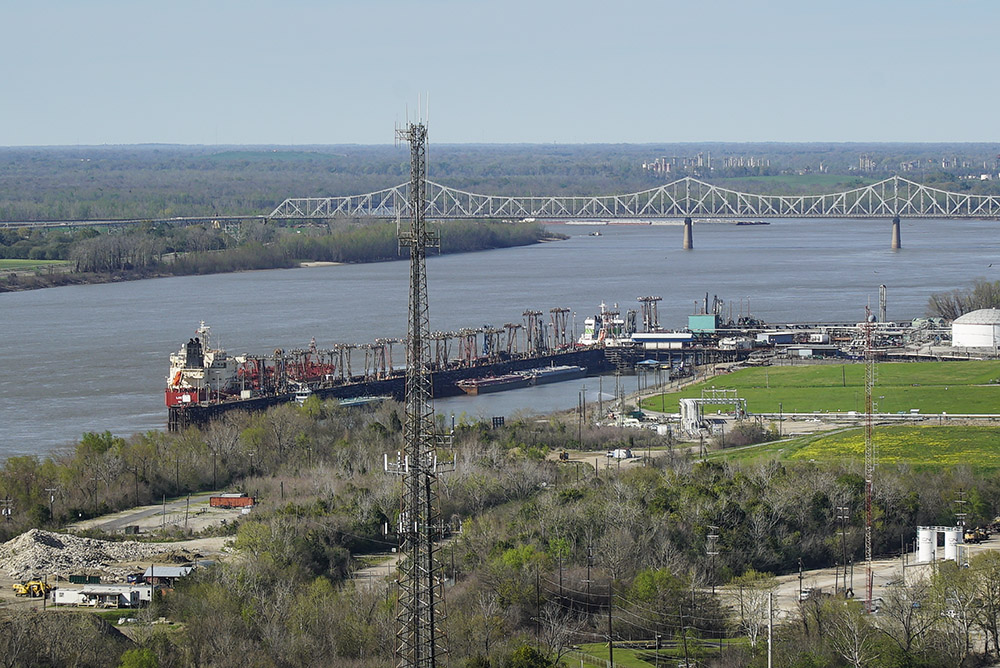
At 27 floors up, you still get a stunning view of Baton Rouge and the Mississippi River. You can see LSU’s Tiger Stadium to the south, activity in the port, which is the furthest point upriver for ocean-going ships, oil refineries, and the garden where Huey Long is buried.
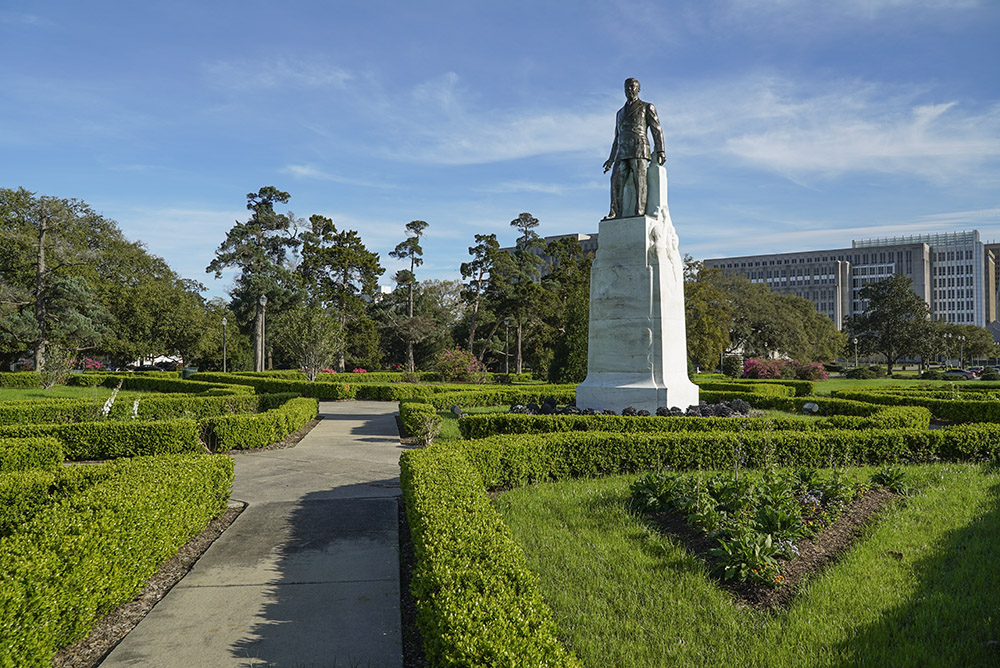
Huey Long never served in this Capitol as governor. He became a U.S. Senator before it was finished. But Long still spent time here. According to Sullivan, “A lot of times when he would come to the Capitol building, he would kick the governor out of the Governor’s Office and use that as his office.”
Three years after the Capitol opened, Long was gunned down when he stepped out of the Governor’s Office in a back hallway. His accused assassin, Dr. Carl Weiss, was the son-in-law of a judge who was one of Long’s political opponents. “Dr. Weiss stepped up from the column and shoots him once or twice,” Sullivan says. “Dr. Weiss is killed by the other body guards that were present and he’s actually shot 61 times.”
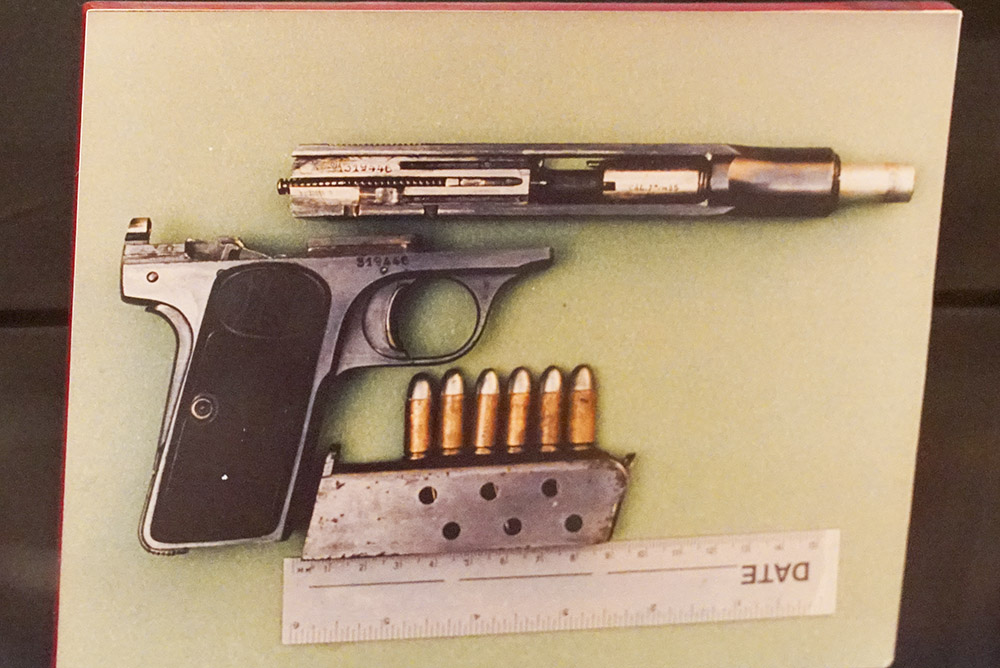
In a back hallway outside the old Governor’s Office, the stone wall still shows the impact of several bullets.
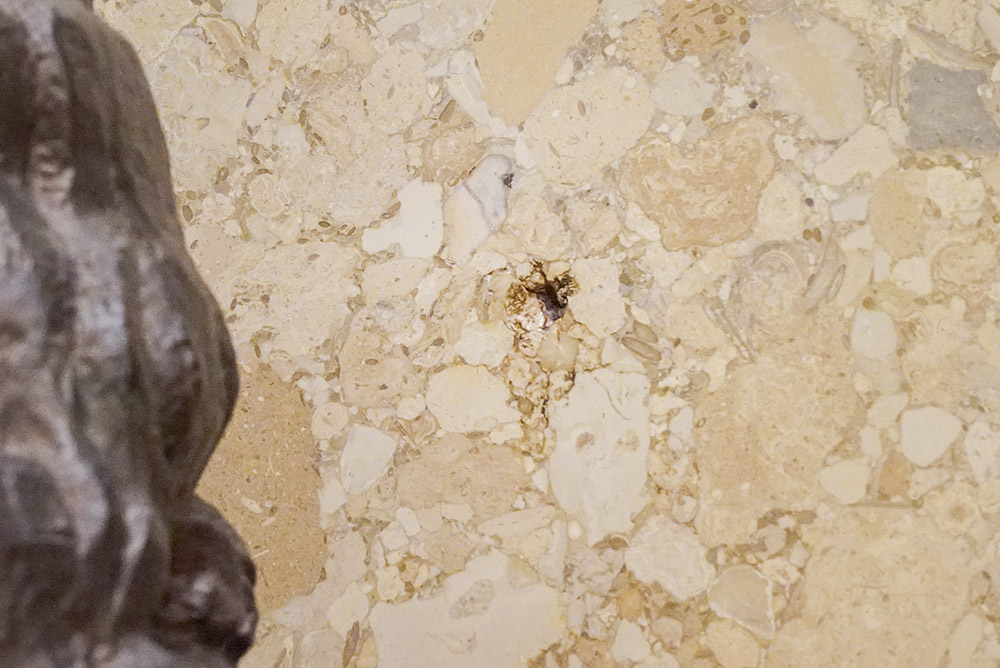
One of the bullet holes is clearly visible over the left shoulder of a bronze statue of Lasalle, which was on display in the hallway at the time of the shooting.
huey long’s death still shrouded in controversy
On the 75th anniversary of the death of Huey Long, a panel of experts and historians discussed the killing of Long in a symposium at the Old State Capitol in Baton Rouge. The panel, which included historians, authors, a former state police investigator, and descendants of both Long and Dr. Weiss, discussed conflicting accounts of Long’s death in September, 1935. The symposium was held August 28, 2010, and was organized by the Foundation for Historical Louisiana and the Louisiana Secretary of state. This TV news feature reveals the conflicting accounts of Long’s death.
There was another act of violence in the Senate Chamber in 1970 during the highly contentious debate over right to work legislation. About midnite on a Sunday when no one was here, an explosion of dynamite tore through the room.
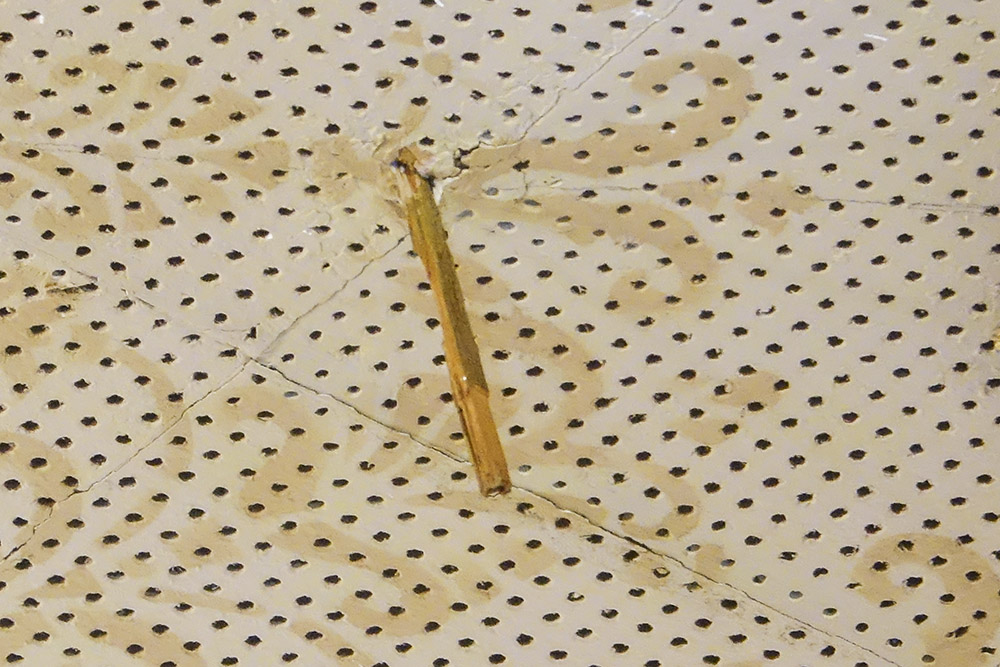
A wood splinter remains stuck in the ceiling tiles high above the desks in the Louisiana Senate Chamber.
It’s worth looking at the detail in this building. In the depths of the Great Depression, it seems no expense was spared here.
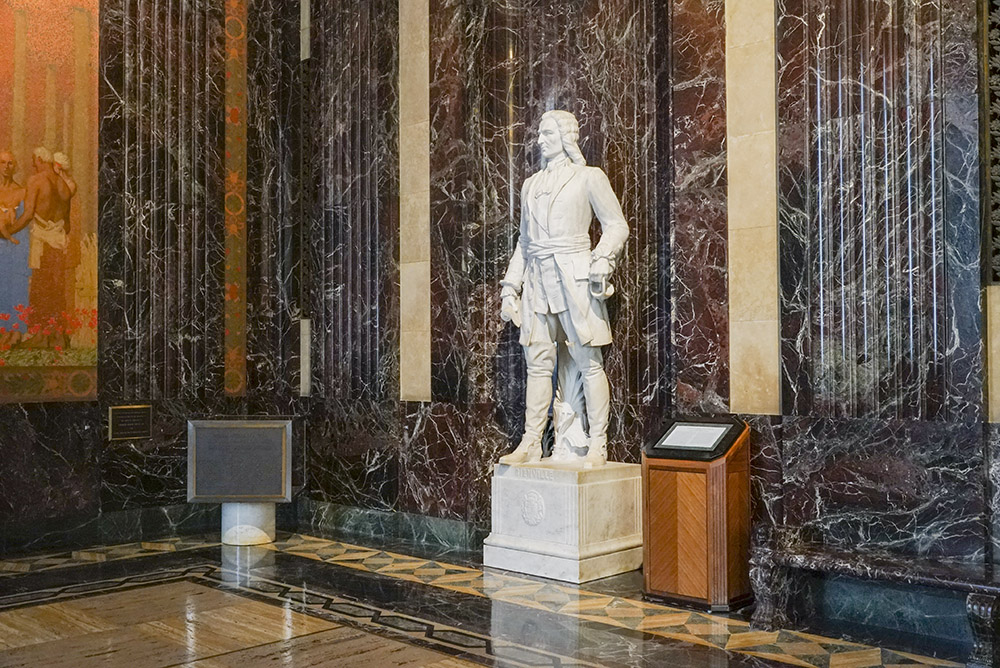
You will see approximately 26 different types of marble and stone from all around the world. The floors are cut from volcanic rock from Italy’s Mount Vesuvius. The murals, the ceiling paintings, the statues and carvings all tell a 1930’s version of the state’s history. The Capitol remains a giant memorial to the populist governor and his vision for the Louisiana.
La capitol featured on tv
Explore the Capital Region
900 North 3rd Street, Baton Rouge, Louisiana

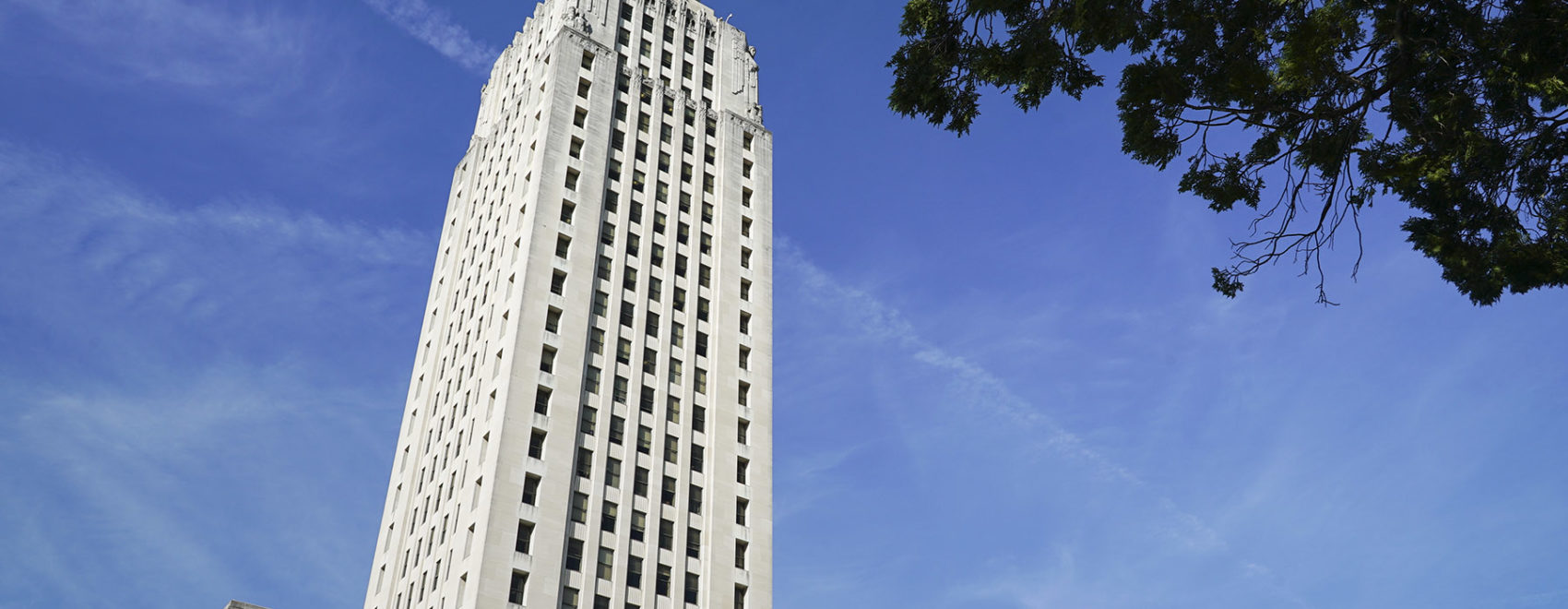

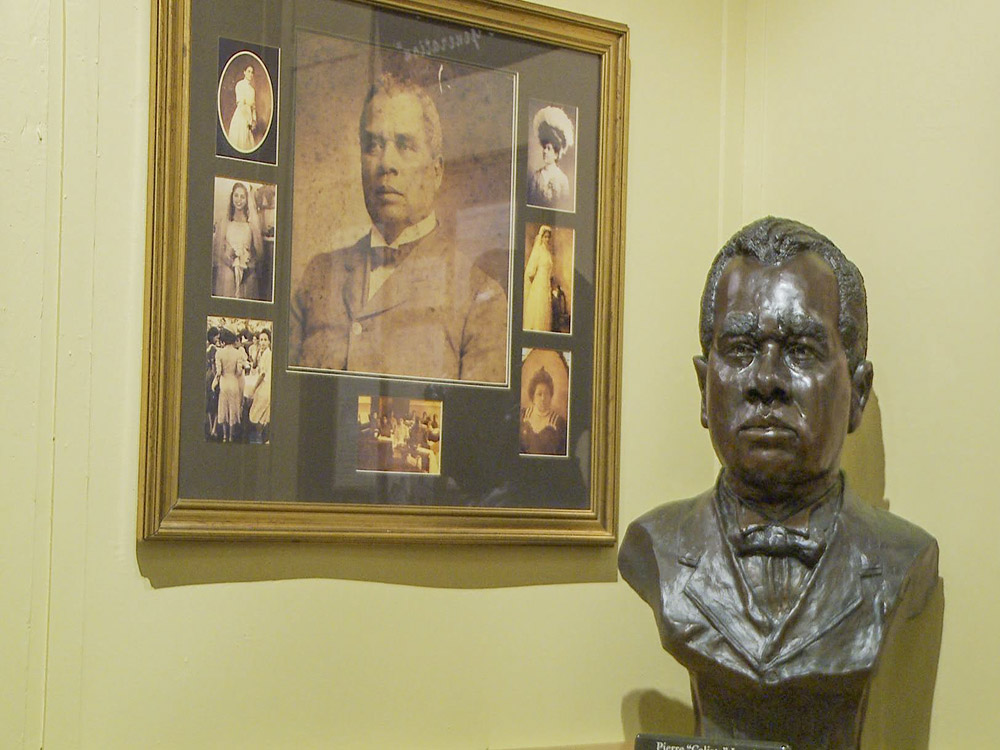
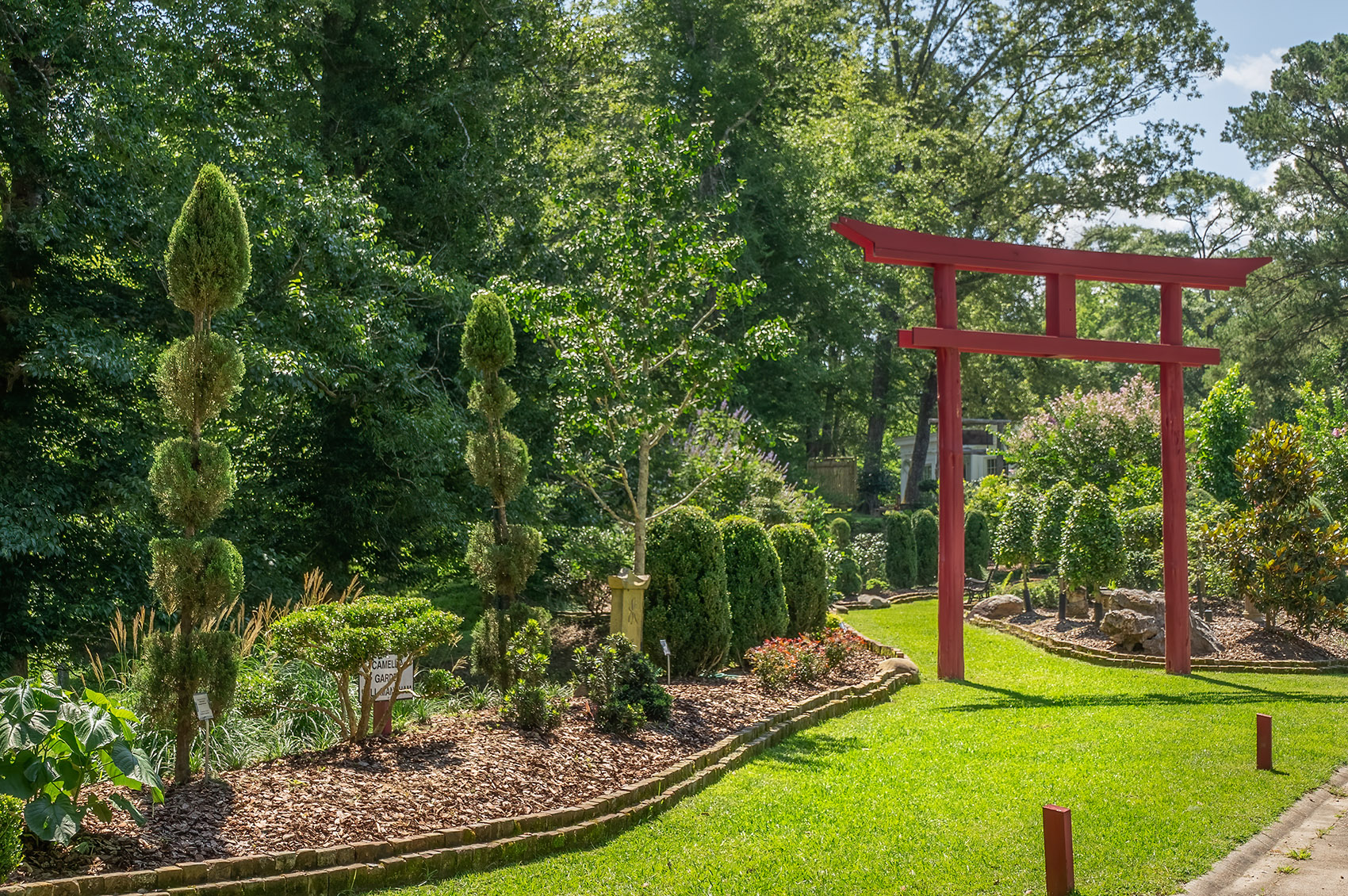
Mike Winstead
You need to check your research. Dr Weiss’ gun was a 32 and found in his car’s glove box. Huey was shot with a 38 from his body guards gun. Both men died with busted lips from the fight.. Check out Col Greenburg’s (head of La. State Police) confession of the cover upl Lond died while waiting for his personal Dr. to drive up from New Orleans. Long died at the hospital because he would not let anyone take care of him before his Dr got there. There was surgery but too late.
lots of cover-up.
This is off the top of my head. Send me an email and I will look in my files for more info.
Here is an article that mentions the Body Gaurd’s
Dave McNamara
Thanks for your interest and information. Your comment reminded me of an all-day symposium that I covered in 2010 on the anniversary of the Huey Long’s death. I’ve added story that to the post above. Dave